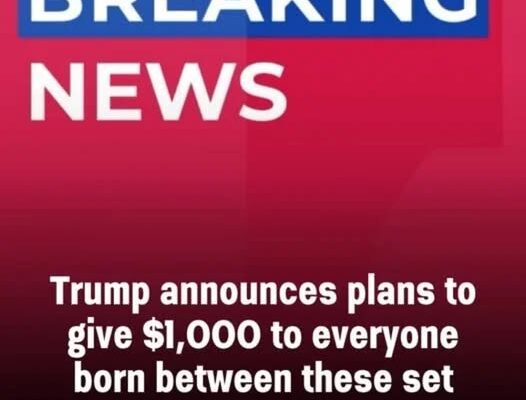In a bold move with far-reaching political and financial implications, President Donald Trump has unveiled a sweeping policy initiative known as “Trump accounts,” which proposes to grant every American child born between December 31, 2024, and January 1, 2029, a \$1,000 government-funded, tax-deferred investment account tied to the stock market. This program aims to foster generational wealth by blending public policy with market capitalism and offering families a pathway to long-term financial security.
The accounts, owned by the child and managed by their guardians until adulthood, are structured similarly to retirement accounts like 401(k)s and IRAs, allowing annual family contributions up to \$5,000. If fully utilized and invested with average market returns of 7%, these accounts could exceed \$500,000 by age 25.
These policies are aimed at working- and middle-class families but raise concerns about long-term sustainability and implementation complexity. Establishing millions of accounts will require advanced coordination between federal and state agencies, financial institutions, and robust technological infrastructure to ensure security and avoid fraud. International comparisons, such as the UK’s former Child Trust Fund and Canada’s RESP, offer lessons in policy design, though the Trump accounts’ universal eligibility and market orientation are uniquely ambitious. If successful, they could reshape American economic policy by democratizing access to equity markets and embedding financial planning into the lives of millions. However, their reliance on volatile markets, potential funding shortfalls, and administrative hurdles pose significant risks. The program’s inclusion in a broader legislative package complicates its passage, with Senate approval uncertain due to concerns about cost and program cuts. The Trump accounts embody both visionary policy thinking and controversial trade-offs, representing a high-stakes experiment in leveraging government tools to enable private wealth accumulation. Whether the program becomes a transformative legacy or a fiscal misstep will depend on execution, long-term market performance, and sustained political support.



